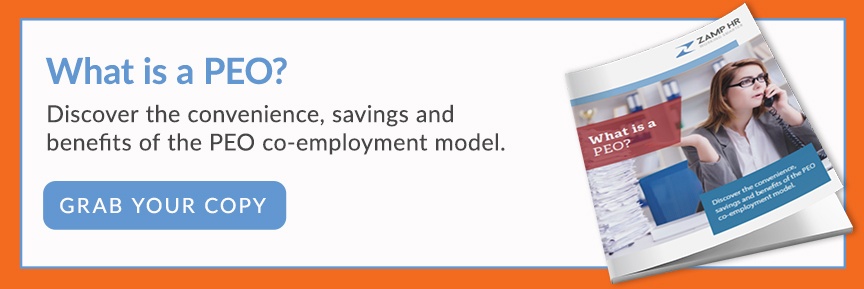HR outsourcing can produce great results for your company, but it has to be used properly. One of the services companies want to outsource the most is payroll processing and that often results in a business owner making the mistake of partnering with a payroll service.
While a payroll service can, indeed, take on the burden of paperwork associated with processing payroll, the fact is that they come with a number of disadvantages. In particular, payroll services alone tend to result in a poor return on investment (ROI), due to the fact that you are paying for a limited service. A second problem is the use of a poorly incentivized HR outsourcing pricing model.
So, what are the biggest disadvantages of using a payroll service?
Negative ROI
The only thing a payroll processor does is the specific task of processing payroll. On the face of it, this seems like a good deal because it frees your staff from spending hours every pay period on paperwork. Payroll processors can often get the task done faster. This gives you a saving that is essentially the hourly salary of your HR staff times the number of hours it takes them to do payroll. While there are still intangible savings in terms of employee morale, the concrete ROI tends to be very low and is often negative.
If you do the math, you will often find you are, in fact, paying the payroll processor more and getting relatively little in terms of advantages. A full-service HR outsourcing partner such as a professional employer organization (PEO), on the other hand, can give you a positive ROI, both directly and through intangible benefits such as improved employee engagement, reduced turnover, and increased productivity.
Not Enough Handled
While payroll is very important, it is only one slice of the HR pie. Your in-house staff (or worse, other employees) still have to handle tasks such as negotiating and administering benefits, setting up workers comp and unemployment insurance, onboarding paperwork, etc. Payroll processors only help partially with remitting payroll tax; they will calculate the amount, but your staff still have to do the actual filing. This adds an extra stage where mistakes can be introduced, causing potential long-term problems. For most companies, only outsourcing payroll processing simply is not enough.
While your payroll processor will handle compliance for payroll-related regulations, such as overtime, it won't help with other compliance issues. Family and Medical Leave Act compliance, for example, can be quite burdensome. A PEO can take on all of your HR compliance issues, which adds to ROI by reducing the number of mistakes and amount of risk. A PEO is also able to file payroll taxes for you which minimizes mistakes and saves time.
Pricing Method
Payroll processors, as already mentioned, use a poorly incentivized pricing model. Generally, they follow one of two pricing styles, both of which are poor value for small to medium-sized businesses:
- Base fee plus an amount for each employee per pay period. The fewer employees you have, the more you pay per employee. While this may make sense for the processor, it means a very high price for small companies with small payroll. The cost of the baseline fee is split between few employees. Often, this results in a directly negative comparison between the cost of the processor and the cost of having in-house staff do the work.
- Percentage of payroll. Some companies charge by percentage of payroll. This might seem to be a better plan for small companies with low payroll, but it results in an increase in costs every time you give an employee a raise. It also penalizes you for bringing in highly-paid and highly-rated talent. The percentage of payroll model is anti-growth for your company and discourages you from treating employees well and giving them the pay they deserve.
Payroll services seem like a good idea until you really dig into it. Meanwhile, a PEO can handle payroll and all of your other HR administration needs. On top of that, they give you access to better benefits than small businesses can get by themselves.
For small to medium-sized businesses looking to save money and outsource routine HR tasks, PEOs are by far the best option. To learn more about PEOs, download our free ebook "What is a PEO?"

.jpg)

